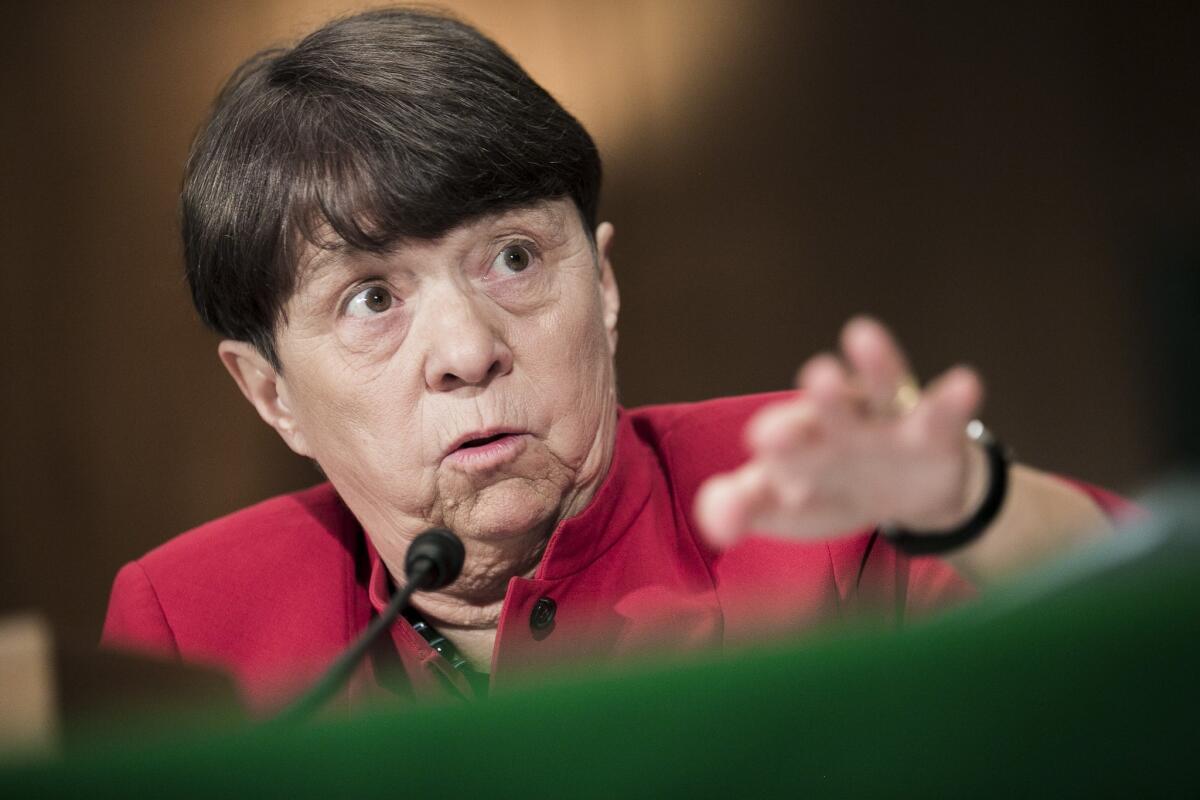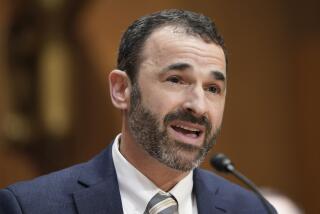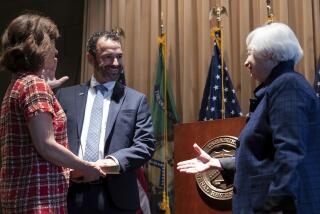Spending deal reduces budget requests for Wall Street watchdogs

WASHINGTON -- The $1-trillion federal spending bill unveiled by congressional negotiators significantly reduces White House requests for funding of two key Wall Street watchdogs.
The Securities and Exchange Commission would get $1.35 billion for the rest of the fiscal year, a $29-million increase from 2013 but $324 million less than President Obama proposed in his budget.
The Commodity Futures Trading Commission would get $215 million in funding for 2014, about a $9-million increase from 2013 but $100 million less than Obama requested.
PHOTOS: Federal Reserve chairs through the years
Both agencies have complained in recent years of not having enough money to do their jobs properly in the face of technological changes, such as high-speed trading, that have reshaped financial markets.
The concerns escalated after the 2010 Dodd-Frank financial reform law expanded their responsibilities and required them to draft dozens of new regulations. Those include the so-called Volcker Rule limitations on high-risk bank trading and new rules on access to capital for small firms under the Jumpstart Our Business Startups Act, known as the JOBS Act.
“The SEC has a huge array of responsibilities, and it did before Dodd-Frank and the JOBS Act,” SEC Chairwoman Mary Jo White told The Times last fall.
She noted that funding constraints meant that the agency only examined about 8% of the nearly 11,000 investment advisors in 2012.
“We use very smart risk-based techniques to figure out where we’re going to go to examine, but you still want much greater coverage than that,” White said.
But Republicans, who almost unanimously opposed the Dodd-Frank law, have objected to large spending increases for regulators in the face of huge budget deficits.
The SEC and the CFTC are the only two financial regulators that depend on congressional appropriations for their funding. Other agencies, such as the Federal Reserve, the Consumer Financial Protection Bureau and the Office of the Comptroller of the Currency, get their money from fees or other funding streams.
The SEC typically collects more in fees from companies than it spends each year. The Dodd-Frank law requires the SEC to put up to $50 million a year in fees into a reserve fund that can grow to $100 million.
The SEC can tap the fund without congressional approval but must tell lawmakers what it is spending the money on. In 2014, the SEC planned to spend $50 million to update agency information technology, including the SEC website and the EDGAR electronic filing system.
The budget deal would remove $25 million from the fund, which House Republicans have called a “slush fund.”
An SEC spokesman had no comment Tuesday on the budget proposal.
The CFTC has no reserve fund and is completely dependent on congressional appropriations. An agency spokesman did not immediately respond to a request for comment.
ALSO:
JPMorgan profit slips 7% in fourth quarter
Charter offers more than $60 billion for Time Warner Cable
More than 2.1 million sign up for Obamacare health coverage
More to Read
Inside the business of entertainment
The Wide Shot brings you news, analysis and insights on everything from streaming wars to production — and what it all means for the future.
You may occasionally receive promotional content from the Los Angeles Times.











